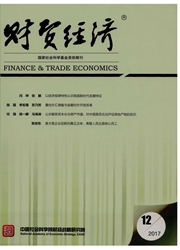

 中文摘要:
中文摘要:
国内关于免征额对收入不平等的研究并未充分考虑个体对政策的反馈作用,这很可能导致政策评估结果的偏差和失真。有鉴于此,本文先使用Heckman三阶段估计法和DID方法分析了免征额提高对个体劳动行为的影响,发现其会促进个体劳动供给时间较明显的增加且女性比男性有更大的增幅,这会改变税前的工资分布。在此基础上,本文还构建了带有行为效应的shapley分解,在统一框架下分析了免征额提高对工资不平等的直接分配效应和间接行为效应。结果表明行为效应不容忽视,其解释了工资收入不平等变化的13%~50%并加剧了不平等,如果不考虑行为效应将低估免征额对不平等的真实影响。另外,免征额的设置要与整体收入分布相协调,如果设置过高,直接分配效应也会加剧工资不平等。
 英文摘要:
英文摘要:
Most research of the impact of tax exemption on wage inequality in China doesn't include the feedback of individuals, which is likely to lead to bias and distortion of policy assessment. So firstly, by using Heckrnan Three Steps and DID(difference in differences) methods, we verify that the raise of tax exemption increases the labor supply time of individuals and the increasing range of woman's labor supply time is larger than that of man. Then, we build the Shapley decomposition with behavioral responses to analyze the direct distribution effect and the indirect behavioral effect of the impact of tax exemption change on wage inequality. The results show that behavioral effect is significant, which explains 13~50 percent of the inequality change and exacerbates the wage inequality. The real impact of exemption on inequality will be underestimated without considering the behavioral effect. Further more, tax exemption amount should be set to match income distribution, and the direct effect may exacerbate the wage inequality distribution with higher tax exemption amount.
 同期刊论文项目
同期刊论文项目
 同项目期刊论文
同项目期刊论文
 期刊信息
期刊信息
